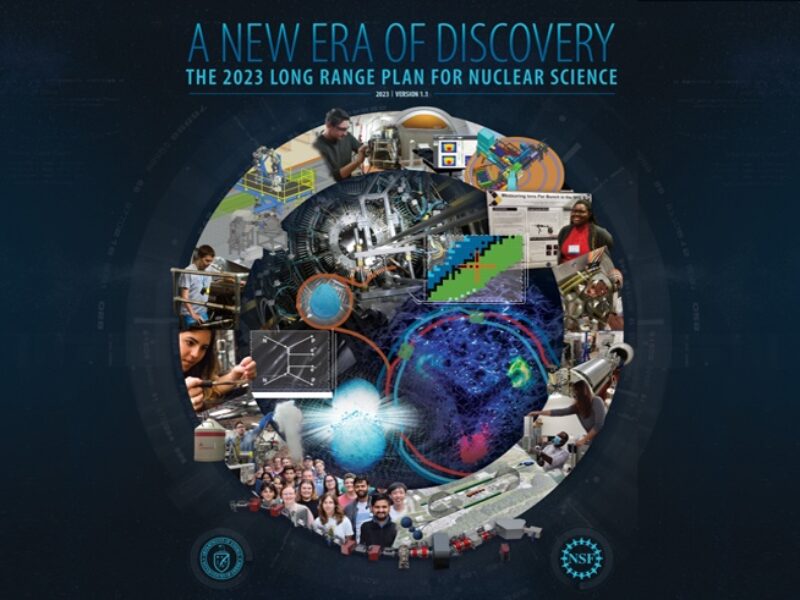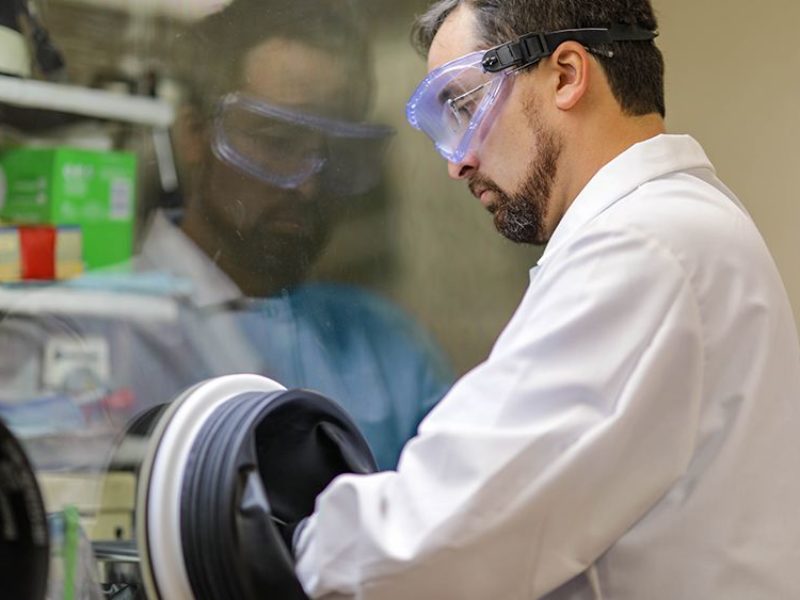Texas A&M Researchers Developing Clean Nuclear Fuel

Scientists and engineers are looking for cleaner energy sources to replace fossil fuels. Nuclear energy is one such possibility, but innovations are being sought to enhance the promise of clean nuclear energy. A team from Texas A&M University has established a collaboration to explore the potential of a new type of thorium-based fuel.
Researchers in the Nuclear Engineering and Science Center (NESC) at Texas A&M and the U.S. Department of Energy’s (DOE) Idaho National Laboratory (INL) have partnered with Clean Core Thorium Energy (CCTE), a Chicago-based company, to fabricate a proprietary thorium-based nuclear fuel called Advanced Nuclear Energy for Enriched Life (ANEEL). This fuel is a combination of thorium and high-assay low-enriched uranium and addresses issues including cost, safety, proliferation and waste management.
Texas A&M will manufacture the ANEEL fuel pellets at the NESC, following the strict guidelines and quality assurance requirements of the DOE and Nuclear Regulatory Commission. They will then send fabricated ANEEL fuel pellets to INL to conduct high burn-up irradiation testing of ANEEL fuel, followed by post-irradiation examination and fuel qualification.
“We are excited for the opportunity to be part of the ANEEL fuel development to work with our colleagues at INL and CCTE to realize a safe and clean baseload energy solution for the world,” said Sean McDeavitt, director of the NESC.

For years, researchers have been investigating new ways to make nuclear energy, often looking at new types of nuclear power plants. However, due to the high cost of full-scale demonstrations, lengthy irradiation and performance testing, and regulatory limitations, most of these new nuclear technologies are still decades away from realization. Despite these challenges, nuclear energy is still one of the largest sources of emission-free power in the world, generating nearly a fifth of America’s electricity and more than half of its clean energy. Moreover, nuclear energy is an abundant clean energy source that can deliver baseload electricity that is needed most in emerging markets.
The Texas A&M/INL/CCTE team is addressing nuclear energy from a different angle. By delivering optimal performance in existing heavy water reactor designs with proven competitive performance, the new ANEEL fuel breaks barriers for fuel utilization, safety and proliferation resistance necessary to lower the hurdles to deploy nuclear energy. When used in small heavy water reactors, ANEEL fuel is ideal for deployment to emerging countries where the need for additional clean energy is most urgent.
Two such existing heavy water reactors are the Canada Deuterium Uranium (CANDU) and the Pressurized Heavy Water Reactor (PHWR). These reactors are heavy water-cooled and moderated pressurized water reactors where the nuclear core is contained in hundreds of pressurized tubes. They usually employ natural uranium oxide as fuel, with heavy water as the moderator (a material used in a nuclear reactor to slow down the neutrons produced from fission). The team feels it is beneficial to use existing reactor technology to minimize the cost and avoid decades-long regulatory hurdles for deployment. There are currently 49 operating PHWR/CANDU reactors in seven countries including Canada, Argentina, India and China.
Using thorium as the main ingredient also has many advantages in these existing reactors. With its higher melting point and lower internal operating temperature, thorium is inherently safer than uranium, making a core meltdown less likely. Due to the higher fuel burn-up possible with ANEEL, waste is decreased substantially. Higher fuel burn-up also means more uranium and plutonium are burned to make energy while the end product is significantly denatured, reducing the possible proliferation of the used fuel. Thorium is also found more abundantly than uranium on Earth and can be extracted readily from seawater, making it a renewable energy source.
“With this collaboration, ANEEL-fueled PHWRs/CANDUs could provide abundant, safe and clean energy in order to build a path to development and dignity for emerging nations,” said Mehul Shah, founder and CEO of CCTE.
This article by Deana Totzke originally appeared on the College of Engineering webstie.





